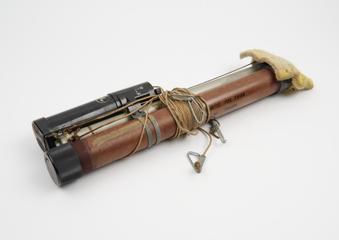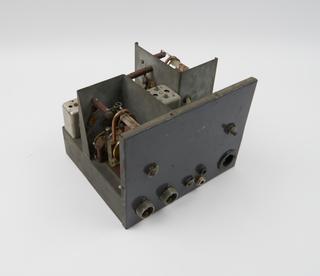
AI-24 Foxhunter Radar
- Made:
- 1970-1990




Ferranti/Marconi AI-24 Foxhunter air interception radar, as fitted to BAe Tornado F3 interceptors, on serving trolley.
[A&S Text panel: How does radar work?
Imagine trying to land a plane the size of a building on a dark and foggy night. How will you ensure that you don’t hit anything? Pilots get around this by using radar.
Radar scanners use radio waves to detect nearby objects. A transmitter located on the scanner sends out radio waves which travel at the speed of light until they hit something. Reflected radio waves are then picked up by the radar system.
The reflected radio waves are displayed on a screen which is monitored by an operator. Blobs of light on the radar could be anything from an oil rig to an enemy aircraft. It takes a skilled operator to tell the difference.
The AI-24 was developed to allow the Panavia Tornado F3 to locate and shoot down targets beyond the visual range in all weathers.]
Details
- Category:
- Radar & Radio Location
- Object Number:
- Y2006.20
- Materials:
- metal (unknown), plastic (unidentified), rubber (unidentified) and textile
- Measurements:
-
overall: 1765 mm x 1250 mm x 1730 mm,
- type:
- aeroplane component




